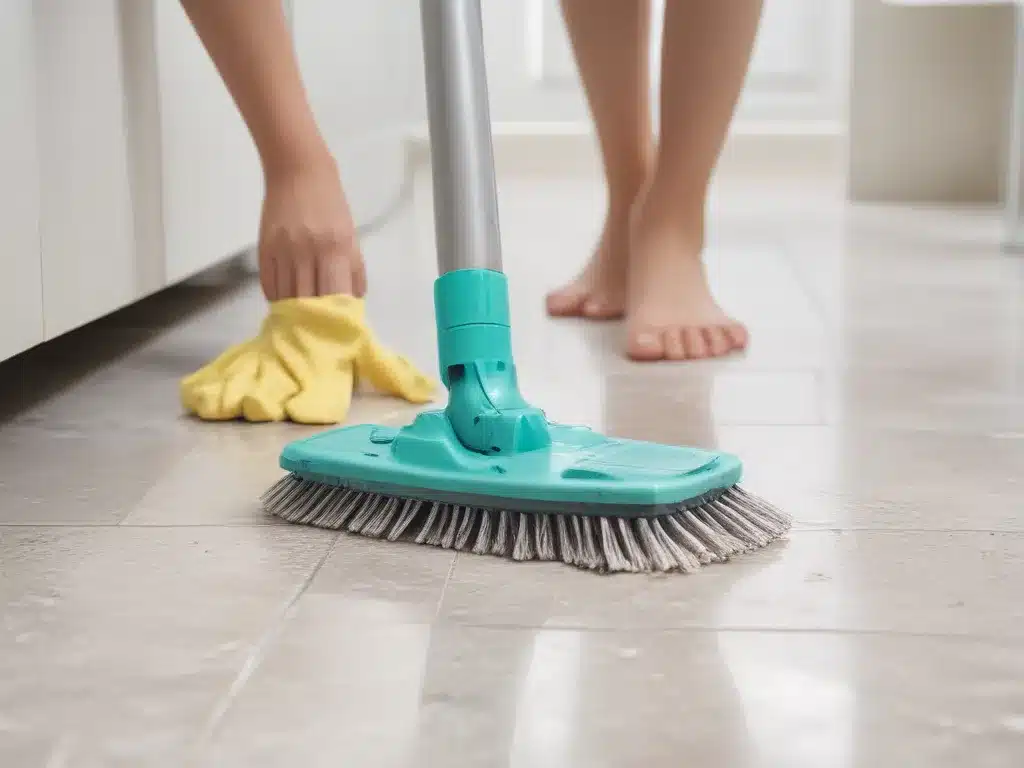Introduction
As the owner of AdamCleaning.uk, I understand the importance of maintaining a clean and hygienic environment, especially in high-traffic areas where germs can easily spread. While commercial cleaning products can be effective, they often contain harsh chemicals that can be harmful to both humans and the environment. In this article, I will share my favorite natural cleaning tips that are not only effective at killing germs but also safe and eco-friendly.
The Importance of Cleaning High-Traffic Areas
High-traffic areas, such as entryways, kitchens, and bathrooms, are hotbeds for germs and bacteria. These areas are frequently touched by multiple people, increasing the risk of spreading illnesses. Proper cleaning and disinfecting of these areas is crucial to prevent the spread of harmful pathogens.
Natural Cleaning Ingredients
Before diving into the cleaning tips, let’s explore some of the natural ingredients that can be used for effective germ-busting:
Vinegar
Vinegar is a versatile and powerful natural cleaning agent. Its acidic nature makes it effective at killing bacteria, mold, and mildew. White vinegar is particularly useful for cleaning and disinfecting surfaces.
Baking Soda
Baking soda is a gentle abrasive that can be used for scrubbing and removing tough stains. It is also effective at neutralizing odors and absorbing moisture, making it ideal for cleaning areas prone to mold and mildew growth.
Essential Oils
Essential oils, such as tea tree, lemon, and eucalyptus, have natural antimicrobial and antifungal properties. They can be added to cleaning solutions for an extra germ-busting boost and a pleasant, natural fragrance.
Lemon Juice
Lemon juice is a natural disinfectant and deodorizer. Its citric acid content makes it effective at cutting through grease and grime, while also killing germs.
Natural Cleaning Tips for High-Traffic Areas
Entryways
Entryways are often overlooked when it comes to cleaning, but they can harbor a significant amount of dirt, bacteria, and germs from foot traffic.
-
Doormat Cleaning: Regularly clean doormats by shaking them outside or using a vacuum cleaner. You can also spray them with a solution of equal parts vinegar and water to disinfect and remove odors.
-
Floor Cleaning: For tile or hardwood floors, create a cleaning solution by mixing 1/2 cup of vinegar, 1/4 cup of baking soda, and a few drops of your favorite essential oil (such as lemon or tea tree) in a bucket of warm water. Mop the floors using this solution, paying extra attention to high-traffic areas.
-
Wall Cleaning: Walls in entryways can quickly accumulate dirt and handprints. Create a paste by mixing baking soda and water, and use a damp cloth to gently scrub the walls. Rinse with a clean, damp cloth.
Kitchens
Kitchens are breeding grounds for germs due to the constant handling of food and the presence of moisture. Maintaining a clean and hygienic kitchen is essential for preventing foodborne illnesses.
-
Countertop Cleaning: For an all-purpose countertop cleaner, combine 1 cup of vinegar, 1 cup of water, and the juice of 1 lemon in a spray bottle. Spray the solution onto countertops and wipe clean with a microfiber cloth.
-
Cutting Board Disinfecting: After each use, clean cutting boards with a solution of equal parts vinegar and water. For extra disinfecting power, sprinkle baking soda onto the cutting board, let it sit for a few minutes, and then scrub with a brush.
-
Sink and Drain Cleaning: Pour 1/2 cup of baking soda down the drain, followed by 1 cup of vinegar. Let the mixture fizz for a few minutes, then flush with boiling water. This will help unclog drains and eliminate odors.
Bathrooms
Bathrooms are notorious for harboring germs, making regular cleaning and disinfecting essential for maintaining a hygienic environment.
-
Toilet Cleaning: For a natural toilet cleaner, sprinkle baking soda into the toilet bowl and let it sit for a few minutes. Then, pour in vinegar and let the mixture fizz. Scrub with a toilet brush and flush.
-
Shower and Tub Cleaning: Create a paste by mixing baking soda and vinegar. Apply the paste to the shower or tub surfaces, let it sit for a few minutes, and then scrub with a brush or sponge. Rinse thoroughly.
-
Tile and Grout Cleaning: Mix equal parts of baking soda and hydrogen peroxide to create a paste. Apply the paste to tile and grout using an old toothbrush or grout brush. Let it sit for a few minutes before scrubbing and rinsing.
Other Tips and Considerations
- Proper ventilation is crucial when using natural cleaning products, especially those containing vinegar or essential oils. Open windows or turn on fans to ensure adequate airflow.
- Always spot-test natural cleaning solutions on a small, inconspicuous area before applying them to larger surfaces to ensure they do not cause discoloration or damage.
- When cleaning with natural products, it’s essential to follow the recommended dilution ratios and safety precautions. Some ingredients, like essential oils, can be irritating if used in high concentrations.
- Regularly wash cleaning cloths, mops, and brushes to prevent the spread of germs and bacteria.
- Consider using microfiber cloths for cleaning, as they effectively trap and remove dirt, dust, and germs without the need for harsh chemicals.
Conclusion
By incorporating these natural cleaning tips into your routine, you can effectively kill germs and maintain a clean, hygienic environment in high-traffic areas without resorting to harsh chemical cleaners. Not only are these methods safer for you and your family, but they are also environmentally friendly and cost-effective. Remember to adapt these tips to suit your specific needs and always prioritize safety when handling cleaning products, natural or otherwise.







